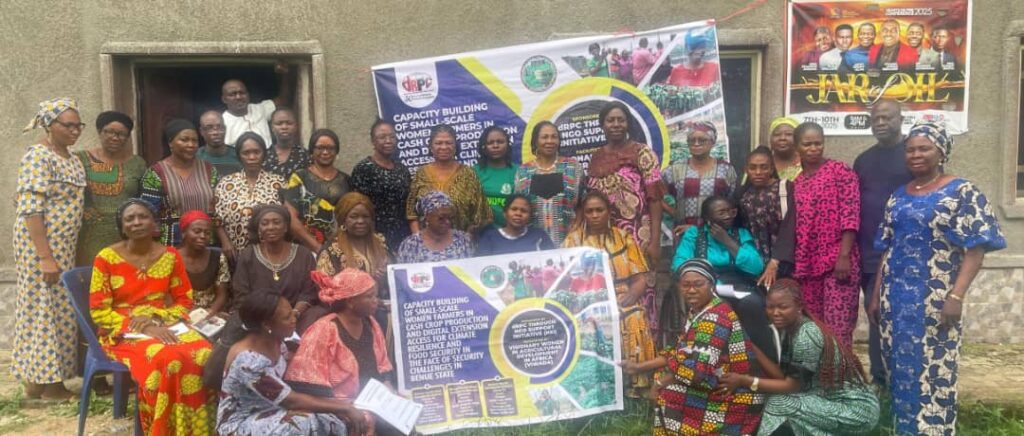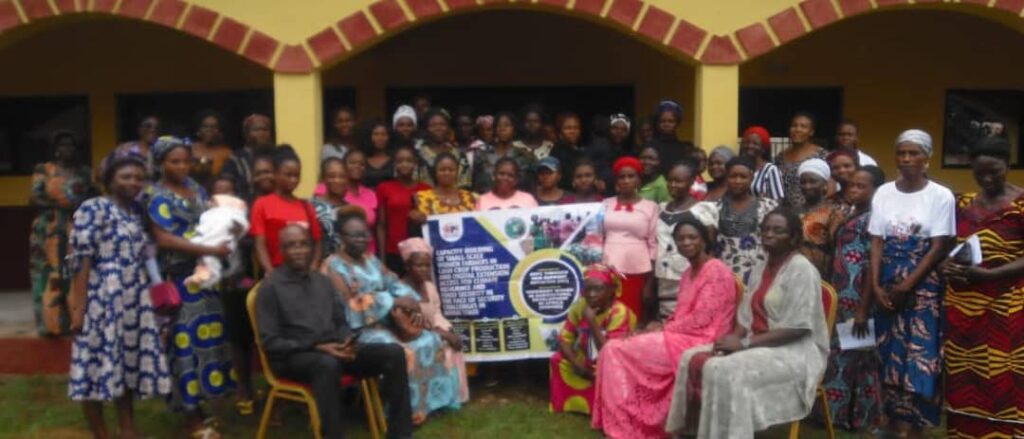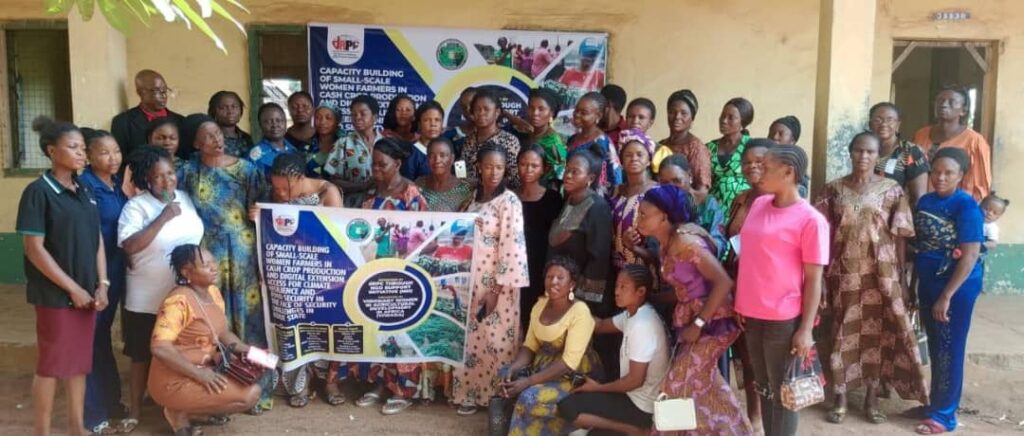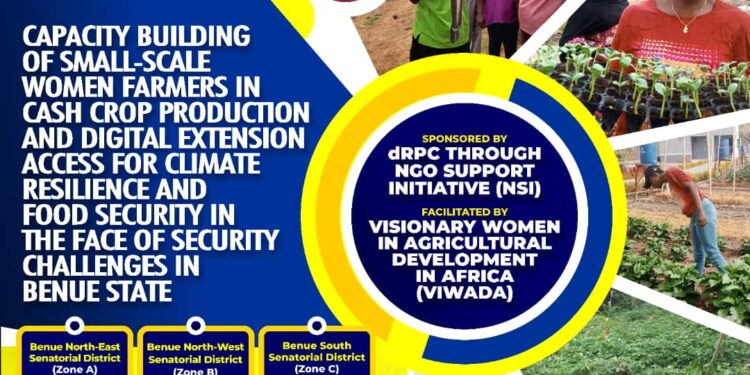By Queen Kunde
The month of August may have closed with heavy rains in Benue, but for 125 small-scale women farmers, it ended with something brighter—hope, fresh skills, and the courage to dream bigger.

Between late July and August, the Development Research and Project Center (dRPC), through its NGO Support Initiative (NSI) grant, sponsored an intensive capacity-building workshop across the three agricultural zones of Benue State. Partnering with Visionary Women in Agricultural Development in Africa (VIWADA), the initiative trained women farmers alongside 70 stakeholders, including community leaders, local government representatives, and agricultural extension agents.

For many of the women, it was the first time they were exposed to modern techniques in cash crop production and digital extension services tools that not only promise to boost yields but also prepare them for the realities of climate resilience and the harsh security challenges plaguing farming communities in Benue.

“We have always grown food just for our families or local markets,” one participant said, her eyes gleaming with excitement. “Now, we are thinking about exports, about adding value, about feeding the world with what we produce.”
The three-day sessions held July 28th–31st and August 27th–29th were more than just training—they became a rallying point for rural women determined to chart a new course in agriculture. By the end of the program, history was made with the birth of three women farmers’ cooperative societies:
- Benue North-East Women Farmers Cooperative Society Ltd
- Benue North-West Women Farmers Consultative Cooperative Society Ltd
- Benue South Women Farmers Cooperative Society Ltd
Each cooperative is expected to become a hub for innovation, collective bargaining, and market access, giving women the strength of unity in a sector long dominated by men.
Stakeholders who attended hailed the project as timely, especially in a state where insecurity has crippled farming and food prices remain on the rise. Local leaders pledged support to ensure the new cooperatives not only survive but thrive.
For the women, the training was not just a workshop—it was a turning point. Armed with new knowledge, renewed confidence, and the solidarity of their peers, they returned home with a mission: to transform subsistence farming into sustainable agribusiness that can feed households, communities, and eventually, the global market.
As Benue continues to face daunting agricultural and security challenges, one thing is clear—the seeds of resilience and ambition planted during the dRPC-NSI sponsored training are already sprouting, with women farmers leading the way.


